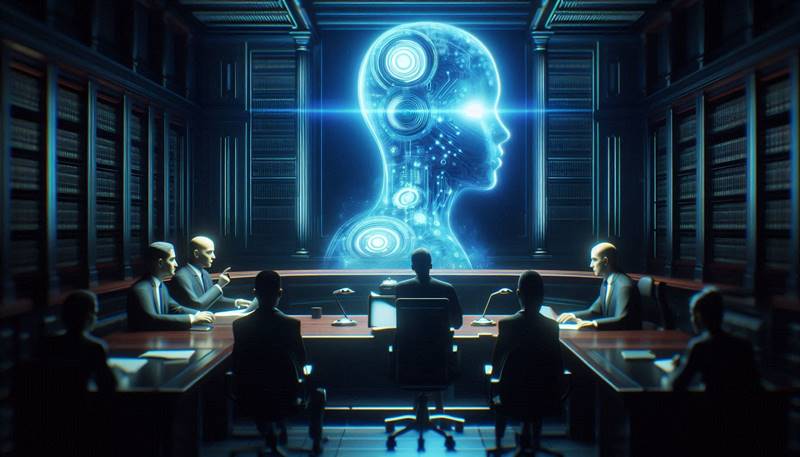The ongoing legal battle between Nintendo and Pocketpair over the game Palworld has stirred up significant discussions in the gaming community. This Nintendo Patent lawsuit, which centers on patent infringement, raises questions about the implications for game developers and players alike. As the case unfolds, it highlights the complexities of intellectual property in the gaming industry and its impact on creativity and innovation.
Key Takeaways
- Nintendo has a history of legal action against both big companies and fan projects.
- The current lawsuit against Pocketpair focuses on patent infringement rather than copyright issues.
- The outcome of this case could set important precedents for how patents are enforced in gaming.
- Developers need to be cautious about patent violations to avoid costly legal battles.
- Gamers may see changes in game availability and content as companies navigate these legal challenges.
The History of Nintendo Patent Lawsuits
Early Cases and Their Impact
Nintendo has a long history of protecting its intellectual property. In the early days, they focused on defending their games against competitors. For instance, they took action against companies that created unauthorized accessories for their consoles. This set a precedent for how they would handle future disputes.
Notable Lawsuits Against Competitors
Over the years, Nintendo has been involved in several high-profile lawsuits. Some notable cases include:
- Game Genie: Nintendo sued the creators for allowing players to cheat in their games.
- Colopl: In 2017, Nintendo claimed that Colopl’s mobile games violated their patents, particularly regarding touch screen controls.
- Blockbuster: This lawsuit was aimed at the video rental industry, showcasing Nintendo’s desire to control how their games were distributed.
The Shift Towards Targeting Fans
In recent years, Nintendo has shifted its focus towards fans and independent developers. They have issued cease and desist orders against fan-made games and mods. This has raised concerns in the gaming community about creativity and innovation. Nintendo’s legal actions have often been seen as a way to protect their brand, but they also risk alienating their fan base.
Nintendo’s approach to legal disputes reflects their commitment to protecting their creations, but it also highlights the tension between innovation and intellectual property rights.
Understanding the Current Lawsuit Against Pocketpair
Background of Palworld and Its Success
Palworld, developed by Pocketpair, has quickly gained popularity among gamers. This indie game combines elements of adventure and creature collection, drawing comparisons to well-known franchises. Its unexpected success has put Pocketpair in the spotlight, but it has also attracted legal attention from Nintendo.
Details of the Patent Infringement Claims
On September 19, 2024, Nintendo and the Pokémon Company announced they had filed a lawsuit against Pocketpair. The lawsuit claims that Palworld infringes on multiple Nintendo patents. The specific patents in question have not been disclosed, leading to speculation about what aspects of the game might be involved.
| Claim Details | Description |
|---|---|
| Filing Date | September 19, 2024 |
| Plaintiffs | Nintendo, Pokémon Company |
| Defendant | Pocketpair |
| Game Involved | Palworld |
Potential Outcomes and Industry Reactions
The outcome of this lawsuit could have significant implications for both Pocketpair and the gaming industry. If Nintendo wins, it may set a precedent for how indie developers approach game design. Reactions from the gaming community have been mixed, with some supporting Pocketpair and others backing Nintendo’s efforts to protect its intellectual property.
The gaming world is watching closely as this lawsuit unfolds. It raises important questions about creativity and ownership in game development.
In summary, the lawsuit against Pocketpair highlights the ongoing tension between large companies and indie developers. As the case progresses, it will be crucial to see how it impacts both parties and the broader gaming landscape.
The Legal Landscape of Video Game Patents

What Constitutes a Patent in Gaming
In the gaming world, a patent is a legal right that protects inventions or processes. This means that if a game developer creates something new, they can prevent others from using it without permission. Here are some key points about patents in gaming:
- Types of Patents: There are utility patents (for new inventions) and design patents (for new designs).
- Duration: Patents usually last for 20 years from the filing date.
- Enforcement: Developers must actively enforce their patents to maintain their rights.
Previous High-Profile Patent Disputes
Several notable cases have shaped the landscape of video game patents. Here are a few:
- Nintendo vs. Universal Studios: This case involved the famous Donkey Kong character and set a precedent for how intellectual property is protected.
- Sony vs. Immersion Corporation: This dispute revolved around haptic feedback technology, which is now common in gaming controllers.
- Apple vs. Samsung: While not strictly gaming, this case highlighted how tech companies protect their innovations, impacting game developers as well.
The Controversy Surrounding Software Patents
Software patents are often debated in the gaming community. Many argue that they can stifle creativity. Here are some reasons why:
- Vague Definitions: Software patents can be hard to understand, making it difficult for developers to know what is protected.
- Innovation Stifling: Some believe that patents can prevent new ideas from being developed, as companies fear legal action.
- Costly Litigation: Defending against patent claims can be expensive, especially for smaller developers.
The gaming industry is constantly evolving, and understanding navigating patent infringement is crucial for developers to protect their creations and foster innovation.
Implications for Game Developers
How Patents Affect Game Design
Patents can significantly shape how games are created. Developers must be aware of existing patents to avoid legal trouble. This can limit creativity as they may need to change their ideas to steer clear of infringement. Here are some key points:
- Increased Costs: Legal fees can add up quickly if a developer is sued.
- Limited Innovation: Fear of lawsuits may prevent developers from exploring new ideas.
- Market Competition: Smaller developers may struggle against larger companies with extensive patent portfolios.
Strategies to Avoid Patent Infringement
To navigate the complex world of patents, developers can adopt several strategies:
- Conduct Thorough Research: Always check existing patents before starting a project.
- Consult Legal Experts: Having a lawyer who specializes in gaming patents can save time and money.
- Design Unique Mechanics: Focus on creating original gameplay elements that stand out.
The Role of Legal Counsel in Game Development
Legal counsel plays a crucial role in game development. They help ensure that developers are protected from potential lawsuits. Here’s why having legal support is essential:
- Risk Management: They can identify potential legal issues early on.
- Contract Negotiation: Legal experts can help negotiate contracts with publishers and partners.
- Patent Strategy: They can assist in filing patents for original ideas, protecting developers from infringement claims.
In the gaming industry, understanding patent laws is vital for developers to thrive and innovate without fear of legal repercussions.
Overall, the implications of patent laws are profound for game developers, influencing everything from design choices to financial stability. As the industry evolves, staying informed and prepared is key to success.
What This Means for Gamers
Impact on Game Availability and Updates
The ongoing legal battles, especially Nintendo’s lawsuit against Pocketpair, could lead to fewer games being available for players. This situation is not just bad for the developers; it also hurts fans. If developers are constantly worried about lawsuits, they might hesitate to create new games or updates.
Consumer Reactions and Community Sentiment
Gamers are expressing mixed feelings about Nintendo’s actions. Many feel disappointed and frustrated, believing that these lawsuits could stifle creativity in the gaming industry. Here are some common sentiments:
- Concern about the future of indie games.
- Frustration over potential game shutdowns.
- Disappointment in Nintendo’s approach to fan projects.
The Future of Fan-Made Content
The lawsuit raises questions about the future of fan-made content. If companies like Nintendo continue to pursue legal action, fans may feel discouraged from creating mods or fan games. This could lead to a less vibrant gaming community.
The gaming world thrives on creativity and innovation. If companies focus too much on legal battles, they risk losing the very fans that support them.
Comparing International Patent Laws

Differences Between US and Japanese Patent Laws
In the world of video games, understanding how patent laws differ between countries is crucial. Here are some key differences:
- Patent Duration: In the US, patents last for 20 years, while in Japan, they can also last for 20 years but may have different renewal processes.
- Patentability Criteria: The US has broader criteria for what can be patented, including software, while Japan is more restrictive.
- Enforcement: The US legal system often favors patent holders, making it easier to enforce patents compared to Japan, where the process can be more complex.
Case Studies of International Patent Disputes
Several notable cases highlight the differences in patent enforcement:
- Apple vs. Samsung: This high-profile case showcased how US courts handle patent disputes aggressively, often leading to large settlements.
- Nintendo vs. Gree: In Japan, Nintendo faced challenges in enforcing its patents against Gree, illustrating the complexities of local laws.
- Sony vs. Immersion: This case involved both US and Japanese laws, showing how international companies navigate different legal landscapes.
How Globalization Affects Patent Enforcement
Globalization has made it easier for companies to operate across borders, but it also complicates patent enforcement. Here are some effects:
- Increased Competition: Companies must navigate various patent laws, which can lead to disputes.
- Legal Costs: The cost of defending patents internationally can be prohibitive for smaller developers.
- Innovation Stifling: Patent infringement claims are relatively unusual in UK law disputes about rival video games where no hardware is involved. This can lead to a chilling effect on creativity and innovation.
Understanding international patent laws is essential for developers to protect their creations while fostering a competitive environment in the gaming industry.
Nintendo’s Legal Strategy and Reputation

Historical Overview of Nintendo’s Legal Tactics
Nintendo has built a reputation for being very protective of its intellectual property. Over the years, they have taken legal action against various entities, including competitors and fans. This strategy has evolved, focusing more on fan projects and smaller developers rather than large companies. Some notable tactics include:
- Cease and Desist orders against fan games.
- Lawsuits targeting companies that use their characters or gameplay mechanics without permission.
- Settlements that often lead to the closure of smaller developers due to legal costs.
Public Perception of Nintendo’s Litigious Nature
Many gamers view Nintendo as a company that is quick to sue. This perception is partly due to their history of legal actions, which often seem excessive. For instance, in a case where Nintendo sued a game for being too similar to Fire Emblem, they were seen as overreaching. This has led to a mixed reputation:
- Positive: Protects their brand and games.
- Negative: Seen as stifling creativity and fan engagement.
- Neutral: Some believe it’s just business.
Expert Opinions on Nintendo’s Legal Moves
Experts have mixed feelings about Nintendo’s legal strategies. Some argue that their approach is necessary to protect their valuable IP, while others believe it harms their relationship with fans. A few key points include:
- Protecting Innovation: Some experts argue that strong legal action encourages innovation by ensuring creators respect existing IP.
- Fan Backlash: Others warn that aggressive tactics can alienate loyal fans and harm the brand.
- Long-Term Strategy: Some believe that while it may seem harsh now, it could pay off in the long run by maintaining a strong brand identity.
Nintendo’s legal actions often reflect a balance between protecting their creations and engaging with their community. The challenge lies in finding that balance without losing the support of their fans.
Overall, Nintendo’s legal strategy has shaped its reputation significantly, making it a topic of discussion among gamers and industry experts alike.
Final Thoughts on the Nintendo Lawsuit
In conclusion, the ongoing lawsuit between Nintendo and Pocketpair over patent issues raises important questions for both gamers and developers. As Nintendo takes a stand to protect its creations, it also highlights the challenges smaller developers face in the gaming industry. This case could set a precedent that may impact how games are made in the future. For gamers, it’s a reminder of the complexities behind the games they love, while for developers, it underscores the need for innovation and caution in a competitive market. The outcome of this lawsuit will be closely watched, as it could shape the landscape of gaming for years to come.


